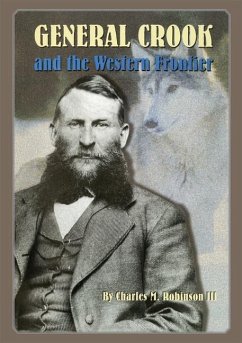General George Crook was one of the most prominent soldiers in the frontier West. General William T. Sherman called him the greatest Indian fighter and manager the army ever had. And yet, on hearing of Crook's death, the Sioux chief Red Cloud lamented, "He, at least, never lied to us." As a young officer in the Pacific Northwest, Crook emphasized training and marksmanship--innovative ideas in the antebellum army. Crook's career in the West began with successful campaigns against the Apaches that resulted in his promotion to brigadier general. His campaign against the Lakota and Cheyennes was less successful, however, as he alternately displayed deep insight, egotism, indecision, and fear. Charles M. Robinson pieces together the contradictions of Crook's career to reveal that although the general sometimes micromanaged his campaigns to the point that his officers had virtually no flexibility, he gave his officers so much freedom on other occasions that they did not fully understand his expectations or objectives. Crook resented any criticism and was quick to blame both subordinates and superiors, yet Robinson shows that much of Crook's success in the Indian wars can be attributed to the efforts of subordinate officers. He also details Crook's later efforts to provide equal rights and opportunities for American Indians. General Crook and the Western Frontier, the first full-scale biography of Crook, uses contemporary manuscripts and primary sources to illuminate the general's personal life and military career. \
Bitte wählen Sie Ihr Anliegen aus.
Rechnungen
Retourenschein anfordern
Bestellstatus
Storno








